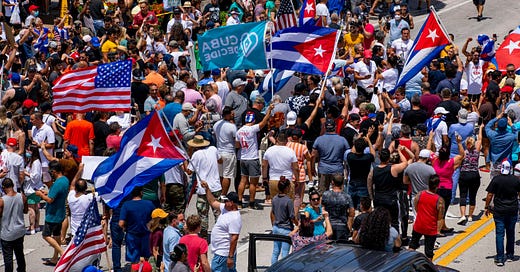Optimism is a Choice: Nanfu Wang on "Night is Not Eternal"
We discuss the timing of her new film, Rosia María Payá, and how to keep optimistic
Nanfu Wang is a Chinese-born American documentary filmmaker. Her earliest film, Hooligan Sparrow, premiered at Sundance in 2016 and would later be shortlisted for Best Documentary Feature at the Academy Awards. Since then she’s directed many features including the acclaimed One Child Nation, and In the Same Breathe which lo…
Keep reading with a 7-day free trial
Subscribe to It's the Pictures to keep reading this post and get 7 days of free access to the full post archives.




